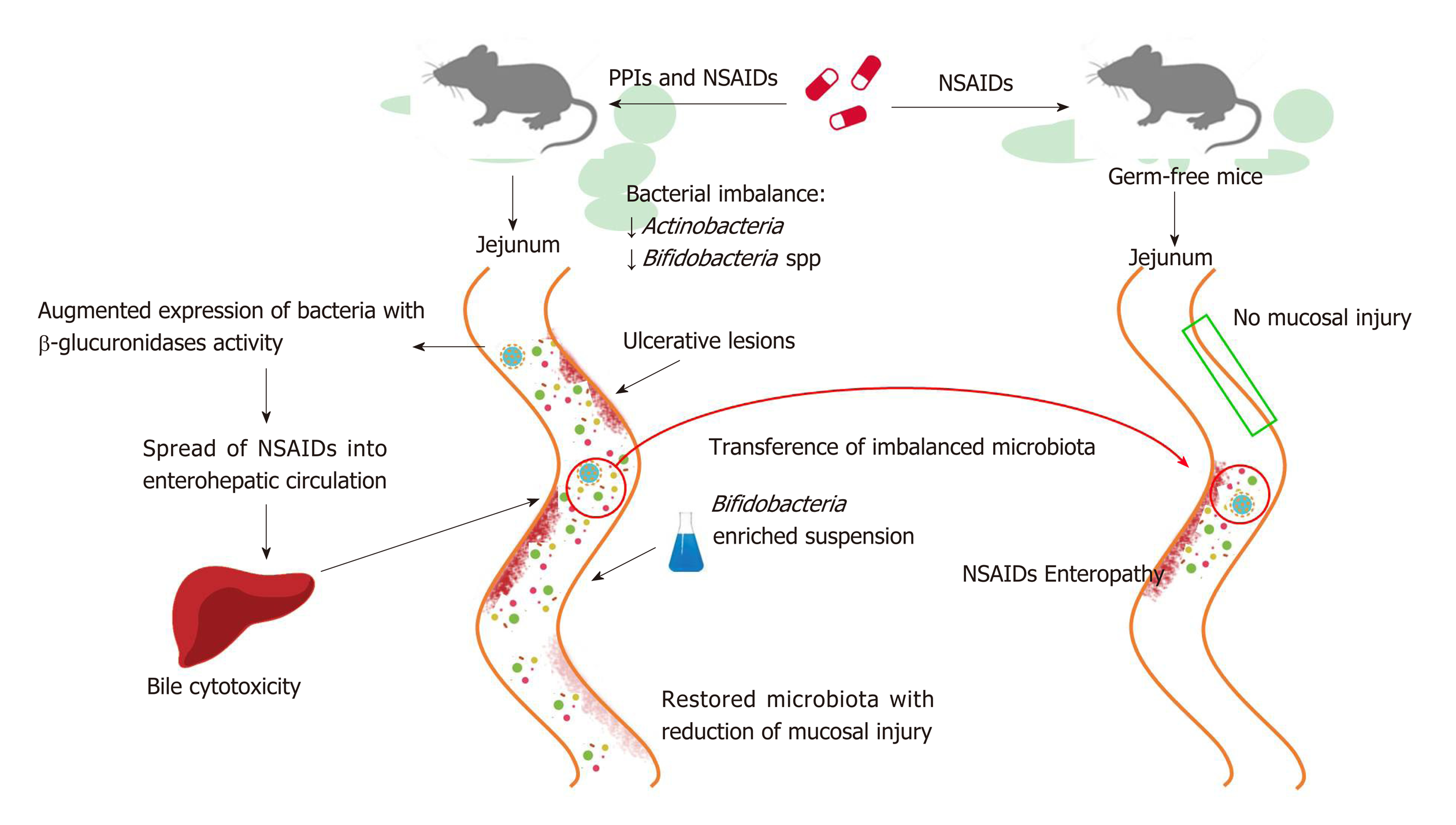Copyright
©The Author(s) 2019.
World J Gastroenterol. Jun 14, 2019; 25(22): 2706-2719
Published online Jun 14, 2019. doi: 10.3748/wjg.v25.i22.2706
Published online Jun 14, 2019. doi: 10.3748/wjg.v25.i22.2706
Figure 2 Proton pump inhibitors promote non-steroidal anti-inflammatory drug-induced enteropathy via microbiota.
Murine models demonstrate that proton pump inhibitor (PPI) treatment, in addition to non-steroidal anti-inflammatory drugs (NSAIDs) therapy, brings about an exacerbation of mucosal damage in the small intestine. PPIs cause a bacterial imbalance, such as the reduction (↓) of Actinobacteria and Bifidobacteria spp., which is responsible for the mucosal damage. Specifically, PPIs increase the expression of bacteria with beta-glucuronidases activity and the consequent spreading of NSAIDs into enterohepatic circulation; ultimately, bile cytotoxicity then causes ulcerative intestinal lesions. The co-administration of Bifidobacteria-enriched suspension restores the gut microbiota and reduces mucosal damage. Germ-free mice are less susceptible to NSAIDs’ harmful effects and they develop NSAID-induced enteropathy through microbiota transfer. PPI: Proton pump inhibitor; NSAID: Non-steroidal anti-inflammatory drugs.
- Citation: Bruno G, Zaccari P, Rocco G, Scalese G, Panetta C, Porowska B, Pontone S, Severi C. Proton pump inhibitors and dysbiosis: Current knowledge and aspects to be clarified. World J Gastroenterol 2019; 25(22): 2706-2719
- URL: https://www.wjgnet.com/1007-9327/full/v25/i22/2706.htm
- DOI: https://dx.doi.org/10.3748/wjg.v25.i22.2706









